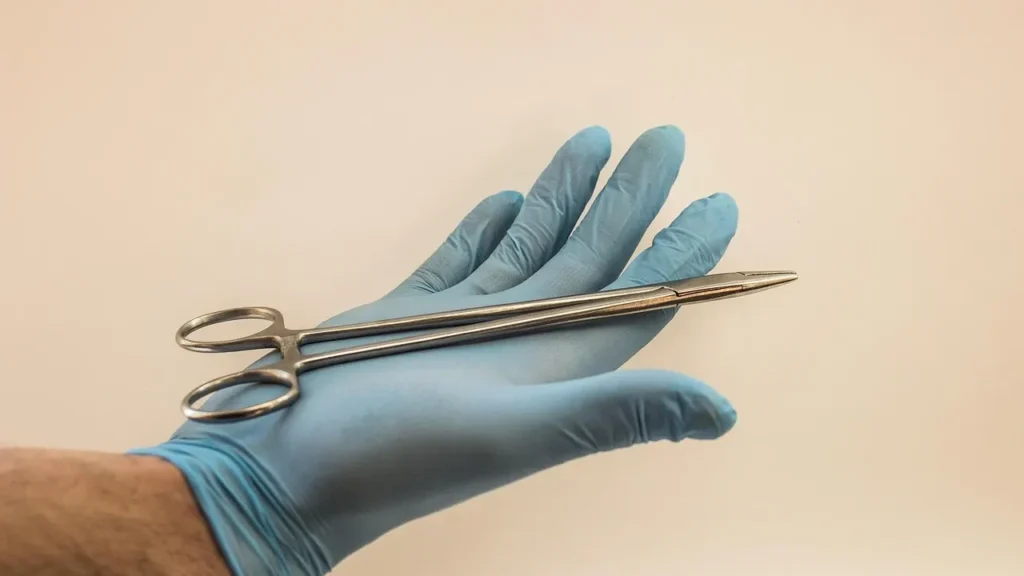
Merck Announces Promising Long-Term Results of Pimicotinib in Phase 3 MANEUVER Trial for TGCT Treatment
Merck, a leading global science and technology company, has today announced the presentation of longer-term results from the global Phase 3 MANEUVER trial. This pivotal study investigates pimicotinib, an investigational colony stimulating factor-1 receptor (CSF-1R) inhibitor being developed by Abbisko Therapeutics Co., Ltd. Pimicotinib is under evaluation for the treatment of patients with tenosynovial giant cell tumor (TGCT), a rare and often debilitating soft tissue tumor that can cause significant pain, stiffness, and impaired mobility.
The latest data from the trial, presented at the 2025 European Society for Medical Oncology (ESMO) Congress, reveals compelling results. With a median follow-up of 14.3 months, the objective response rate (ORR) for pimicotinib-treated patients increased substantially to 76.2%, a notable improvement from 54% at Week 25. This increase in ORR was determined by a blinded independent review committee (BIRC) using RECIST v1.1 criteria, which assesses tumor shrinkage. Additionally, the trial demonstrated continued, clinically significant improvements in key secondary endpoints related to patient outcomes, such as pain, physical function, and range of motion. These findings underscore the potential of pimicotinib as a transformative treatment for patients suffering from TGCT, offering both tumor shrinkage and improved quality of life.
Strong Tumor Response and Long-Term Benefits
The global Phase 3 MANEUVER trial includes data from 63 patients who received pimicotinib for 24 weeks in Part 1 of the study, after which they continued treatment in the open-label phase. Over the extended follow-up period, the data continued to show promising tumor response and improvements in symptoms:
- The ORR based on RECIST v1.1 increased to 76.2% (95% CI: 63.8, 86.0), compared to 54% at Week 25.
- The ORR based on tumor volume score (TVS), an endpoint tailored specifically for TGCT, improved to 74.6% (95% CI: 62.1, 84.7), from 61.9% at Week 25.
- At the time of the data cutoff, the median duration of response had not yet been reached, but 93.7% of pimicotinib-treated patients showed a reduction in tumor size, with follow-up periods ranging from 0.03 to 19.81 months.
These data further reinforce the idea that pimicotinib can provide lasting, robust tumor responses, a critical factor for patients suffering from TGCT, where conventional therapies often fall short.
Improvements in Pain, Function, and Mobility
Beyond tumor shrinkage, the trial also demonstrated significant, ongoing improvements in patient-reported symptoms and physical function, critical aspects of TGCT treatment. The effects on daily living are especially meaningful, as TGCT often limits patients’ mobility and ability to engage in normal activities.
- Range of Motion: Pimicotinib showed a mean improvement of 23.9% from baseline in relative range of motion, an increase from 15.6% at Week 25.
- Physical Function: Patients reported continued improvements in physical function, as measured by the PROMIS-PF scale (a common measure of physical functioning), indicating that pimicotinib is helping to restore mobility and quality of life.
- Pain and Stiffness: Reductions in both pain and stiffness were observed. The mean change from baseline in the Worst Stiffness Numeric Scale (WSNS) and Worst Pain Inventory (BPI) ratings were clinically meaningful, reinforcing the therapeutic potential of pimicotinib in managing TGCT symptoms.

These improvements are crucial, as pain, stiffness, and loss of range of motion are hallmark symptoms of TGCT that can severely affect a patient’s ability to function in daily life. The continued benefit seen in these secondary endpoints further supports pimicotinib’s potential as a comprehensive treatment option for TGCT patients.
Benefits for Patients Initially on Placebo
The study also included patients who were initially randomized to receive a placebo in Part 1 of the trial and later switched to pimicotinib in the open-label phase. A total of 31 patients in this group demonstrated clear benefits from pimicotinib treatment, with an ORR of 64.5% by both RECIST v1.1 and TVS after a median follow-up of 8.5 months post-switch. These findings further suggest that pimicotinib can deliver meaningful clinical benefit even for patients who may not have received the active treatment from the outset.
Safety Profile and Tolerability
Importantly, pimicotinib’s safety profile remained consistent with previous reports and was generally well-tolerated. There were no new safety signals identified in the extended follow-up, and the treatment did not show evidence of hepatotoxicity (liver damage), cholestasis, or skin/hair hypopigmentation—side effects that can sometimes be seen with other therapies. Most treatment-emergent adverse events (TEAEs) were mild and manageable, suggesting that pimicotinib offers a favorable safety profile for long-term use in TGCT patients.
Regulatory Progress and Global Expansion
Encouraged by these promising long-term results, Merck and Abbisko Therapeutics are progressing with regulatory submissions for pimicotinib. The drug has already been accepted for marketing authorization review by the China National Medical Products Administration (NMPA) for use in adult TGCT patients. Additionally, regulatory applications are planned in the United States and other global markets, signaling the potential for pimicotinib to become a first-line systemic treatment for TGCT patients worldwide.
Expert Perspectives
Prof. Niu Xiaohui, Director of the Bone and Soft Tissue Tumour Diagnosis and Research Centre at Beijing Jishuitan Hospital, highlighted the significance of the new findings, noting that pimicotinib’s ability to produce the highest objective response rate observed in a Phase 3 trial of a systemic therapy for TGCT marks a major breakthrough. “These long-term results not only confirm the durability of tumor response but also show meaningful improvements in symptoms that are critical to patients’ daily lives,” he said.
Sydney Stern, PhD, MS, from TGCT Support, a program of the Life Raft Group, echoed these sentiments, emphasizing the importance of treatment options that can help alleviate the physical and emotional toll of TGCT. “Pimicotinib offers hope for patients to regain their roles in life without the constant fear of their disease taking over,” she said.







